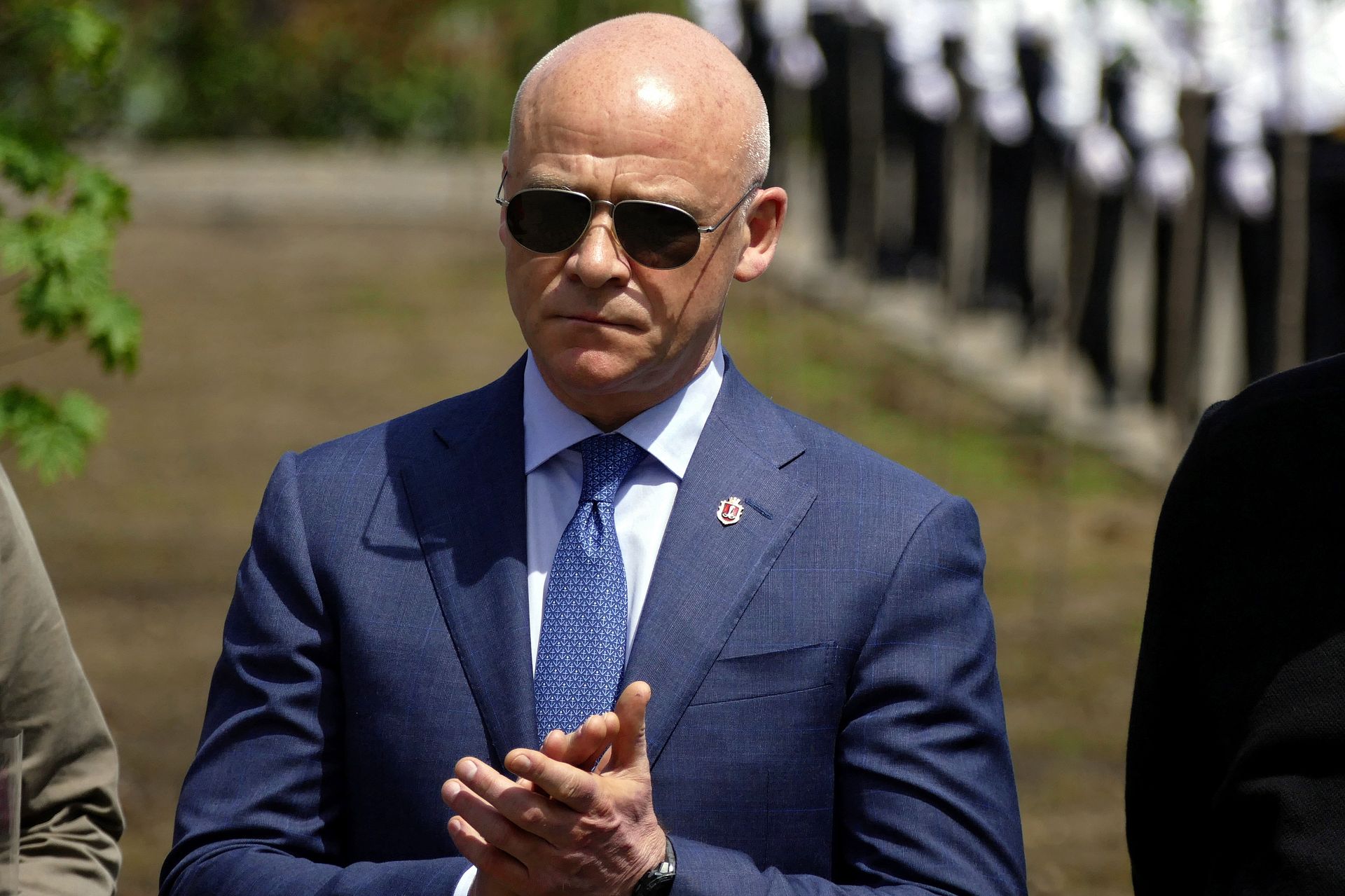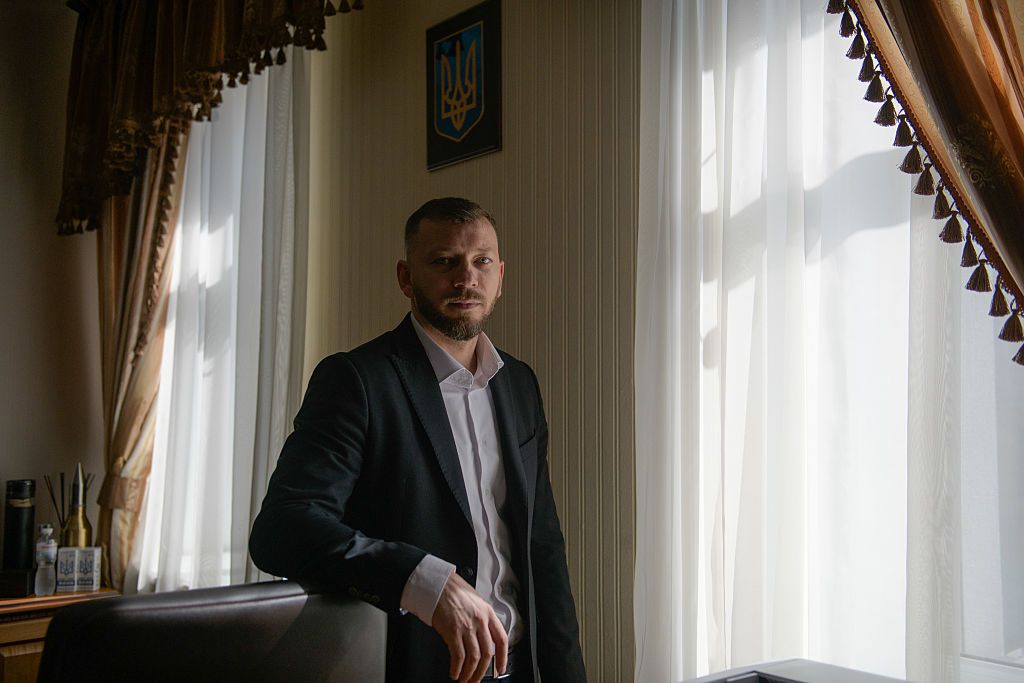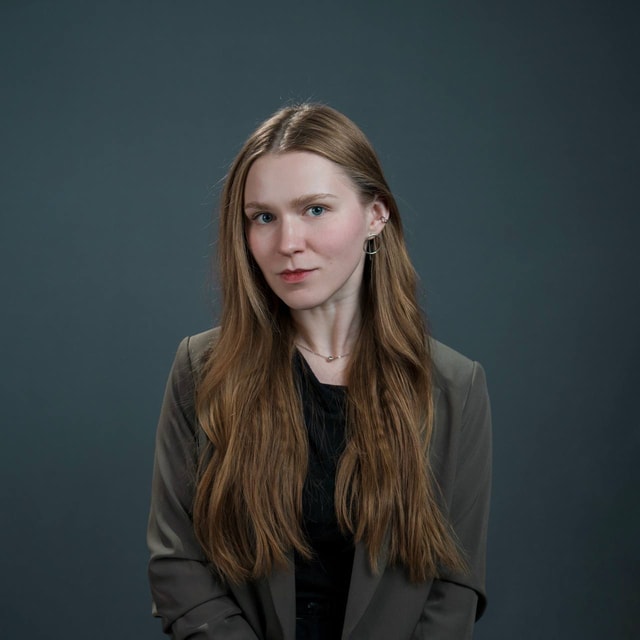Zelensky takes full control of Odesa, sending message to local governments
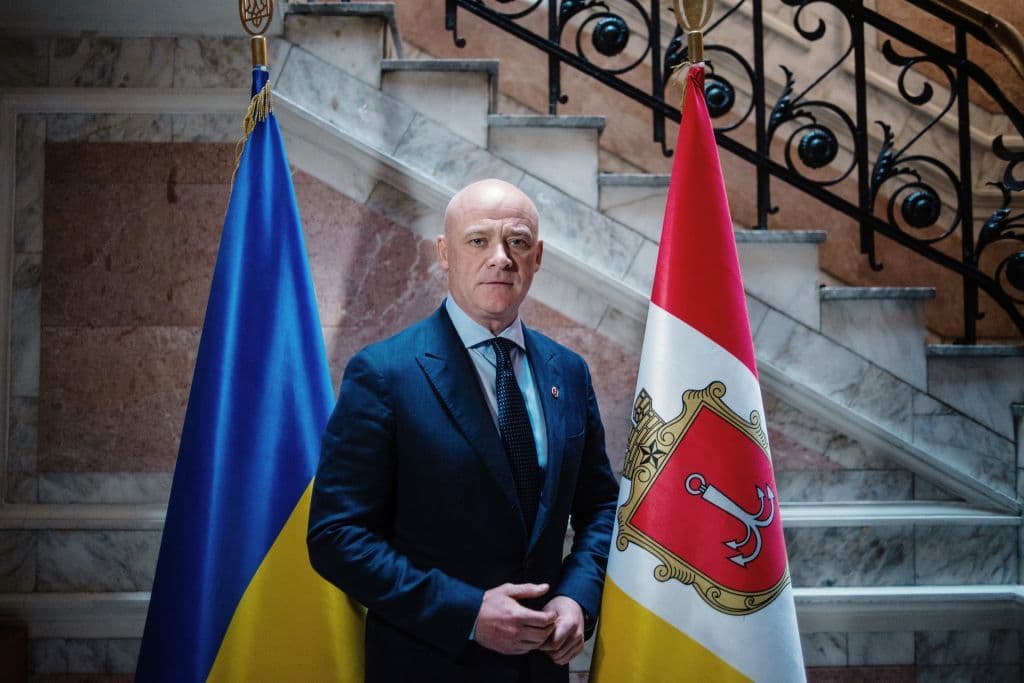
Hennadiy Trukhanov, former mayor of Odesa, at city hall in Odesa, Ukraine, on Sept. 27, 2022. (Julia Kochetova/Bloomberg via Getty Images)
When Odesa Mayor Hennadiy Trukhanov was stripped of his Ukrainian citizenship, a move that immediately ended his political career, some local residents erupted in celebration.
The questionable practice of stripping Ukrainian citizens of their citizenship was applauded by those who spent years battling the tainted mayor.
Seen by his opponents as pro-Russian and corrupt, Trukhanov, who led Odesa since 2014, was charged with negligence soon after his passport was revoked. He was bound to house arrest on Oct. 31.
"I think this is a planned political attack," Trukhanov said via video link at a Kyiv court hearing, calling the charges "unfounded."
Experts the Kyiv Independent spoke with believe that President Volodymyr Zelensky's decision to revoke Trukhanov's citizenship had been on the table for a while, but the deadly floods in Odesa served as the trigger for the president's act.
Zelensky's move against the mayor of Ukraine's third-largest city comes as a warning. Local officials, long seen as the last independent political players in Ukraine, are being looked into by Kyiv.
"It's quite easy to use Trukhanov's case to show others what could happen to them," political analyst Oleh Saakian told the Kyiv Independent.
"The message is not being sent to Trukhanov. It is being sent, through Trukhanov, to the mayors of other big cities."
Odesa's ruling trinity
For years, journalists' reports and leaked documents suggested that Trukhanov may be a Russian citizen. The authorities turned a blind eye until now.
Following deadly floods in Odesa that claimed the lives of nine people, Zelensky turned to his preferred tool.
"A toxic figure who's loyal to you but fails to handle problems in his own region ends up hurting the central government," Saakian said.
The Ukrainian president can't dismiss elected mayors. But under the law, a mayor's powers are terminated if their citizenship is revoked. Following the president's decision, Trukhanov effectively lost his job.
Trukhanov’s lawyer Oleksandr Lysak said his client will appeal the presidential decree in the Supreme Court, claiming the documents provided by the Security Service are fake.
Although not formally aligned with Zelensky's team, Trukhanov had long remained loyal and largely uncritical of the central government, unlike some of his counterparts in other Ukrainian cities.
"Trukhanov has always managed to stay on good terms with whoever’s in power. Calling this a crackdown on an opposition figure just doesn’t hold up — not at all," Saakian said.
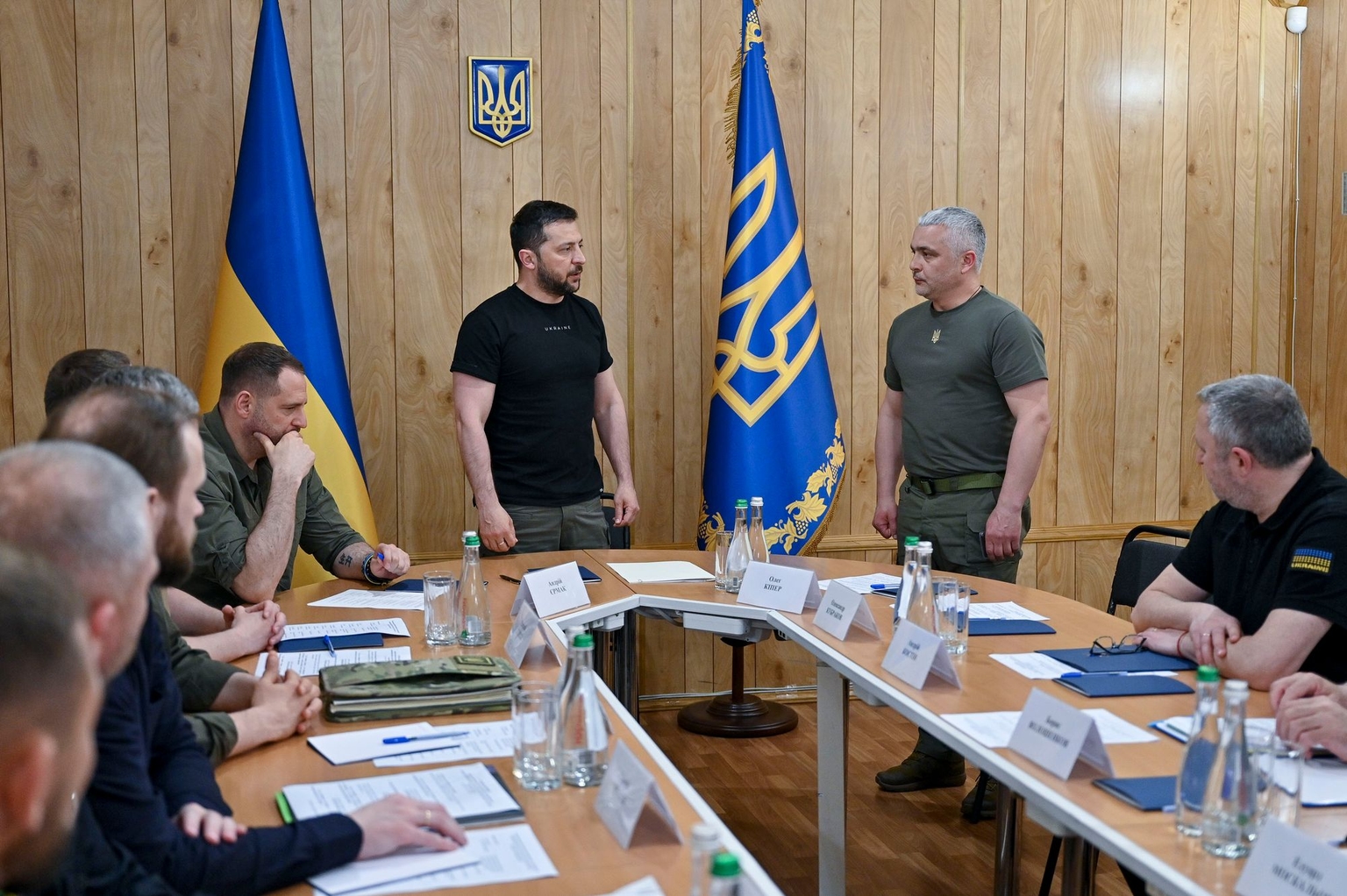
In turn, Zelensky established a local military administration in Odesa, a temporary body that took over some of the city council's functions, effectively sidelining local self-governance.
General Serhii Lysak, who was appointed by the president to head the newly created military administration in Odesa, has been working in different military positions since the start of the all-out war, including at Ukraine's Security Service, a body which is seen as loyal to the President's Office.
Odesa Oblast Governor Oleh Kiper, appointed in 2023, is also a friendly face for the president. A career prosecutor, Kiper served as an informal adviser to the President’s Office Chief Andrii Yermak.
"This is a concentration of power by a single political team," Saakian said.
"Now, literally all key positions are held by the central government appointees. In fact, direct governance from Kyiv has been introduced in Odesa."
Trukhanov's duties have been transferred to the city council secretary, Ihor Koval — a representative of Zelensky's Servant of the People party.
In a comment to the Kyiv Independent, his spokesperson said that the city council remains "fully operational" and is working together with the city's military administration.
According to Zelensky, the creation of the military administration in Odesa was meant to strengthen the city's defense following the floods and amid relentless Russian attacks on the energy grid.
As Olexiy Haran, politics professor at the Kyiv Mohyla Academy and research advisor at the Democratic Initiatives Foundation, points out, the issue is whether Zelensky's move violates the law.
The procedure for depriving people of Ukrainian citizenship through presidential decrees without court decisions has been lambasted as legally dubious.
Complaints about pressure
The friction between Ukraine's central and local authorities is not new. Long before Russia's full-scale invasion, some mayors complained of political pressure from Kyiv.
Launched in 2014 as part of Ukraine's democratic reforms, decentralization has steadily reshaped the balance of power between the center and the regions, giving local governments authority once concentrated in Kyiv.
When local elections were held a year after Zelensky's presidential and parliamentary victories in 2019, his party failed to win in any major Ukrainian city. With a grip on parliament and government, Zelensky still found local power centers largely beyond his control.
The introduction of martial law in 2022 had once again reshaped the power dynamic, returning the ball to Zelensky's court.
The Association of Ukrainian Cities, led by Kyiv Mayor Vitali Klitschko, has repeatedly called on Zelensky to respond to what it describes as "systemic pressure" on local governments, including police investigations, court cases targeting local officials, and siphoning money from local budgets.
Over the past three years, the leadership of several Ukrainian cities echoed similar complaints.
About a year ago, Dnipro Mayor Borys Filatov said that multiple criminal cases had been opened against city council employees as anonymous Telegram channels had targeted him with smear campaigns.
Previously, a court also suspended Chernihiv Mayor Vladyslav Atroshenko from running the city, citing an alleged conflict of interest. During the court proceedings, he was supported by mayors of several major cities, including Andrii Sadovyi, who has led the western city of Lviv since 2006.
After that, the war-battered Chernihiv has faced a political crisis with the newly established military administration assuming most of the local government's powers.
"All city leaders know perfectly well that the President's Office has an extremely negative attitude toward decentralization — they keep tightening the screws, constantly restricting local powers," said political analyst Ihor Reiterovych.
Following Trukhanov's ousting, the question arises whether the president's harshest critic and supporter of local self-governance will be silenced.
"The question now comes down to whether Klitschko will be taken down or not," Reiterovych said.
Kyiv standoff
President Zelensky and Kyiv Mayor Klitschko have been in an open political conflict since 2019.
Klitschko's hand isn't strong. The President's Office can remove him as head of the Kyiv City Administration — a powerful role that exists alongside the mayoral office. He has held both positions since 2014: one by election, the other by presidential appointment.
From the start of his presidency, Zelensky wanted to put a loyalist in charge of the Kyiv City Administration. But a legal provision stood in the way — under the law, the post belongs to the city's elected mayor.
The latest events in Odesa prompted new speculation about possible attempts to sideline the Kyiv mayor.
Until recently, Kyiv has been the only major city with a military administration in place. While its establishment was officially framed as a security measure to bolster the capital's defense, many observers saw it as a political move to diminish the authority of Klitschko.
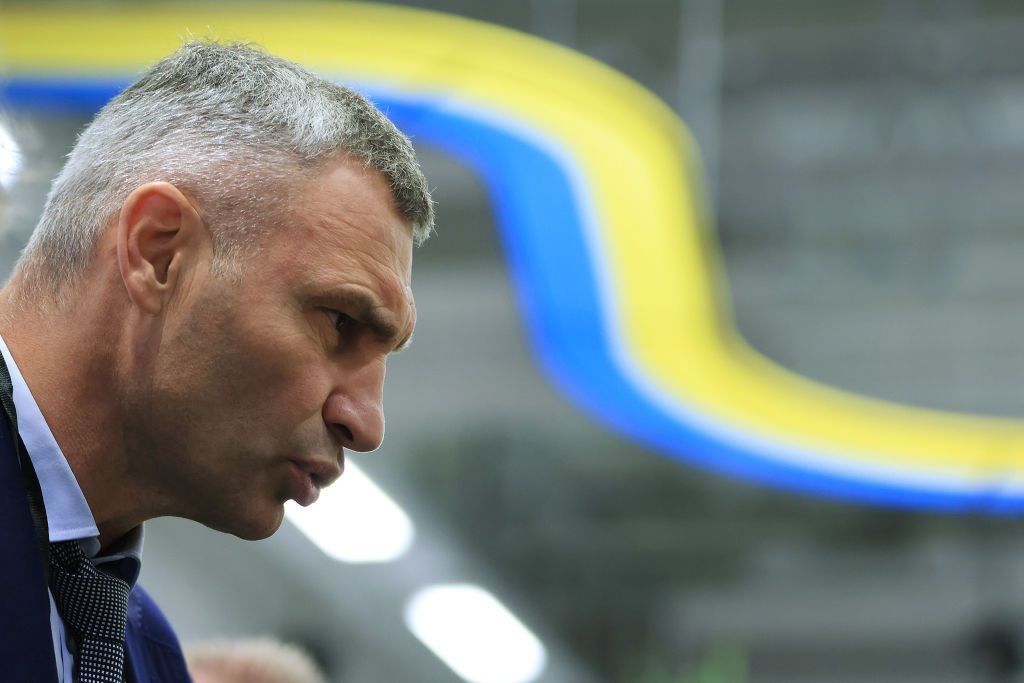
A power struggle has since emerged between the mayor and Tymur Tkachenko, who was appointed to lead the Kyiv City Military Administration.
Klitschko regularly faces criticism for his handling of city affairs, while his associates have been charged with wrongdoing.
Throughout the war, Zelensky has also repeatedly hinted at blaming him for scandals such as closed bomb shelters during a Russian attack that left civilians dead in 2023.
His latest veiled criticism of Klitschko centered on Kyiv's energy defenses as Russia steps up drone and missile attacks.
"Whoever controls Kyiv largely determines policy not only in the capital but across the entire country," Haran told the Kyiv Independent.
"If Zelensky acts based on proven facts, that’s a good thing. But those facts must truly be proven — only then will society have no reason to question it."
Note from the author:
Hello there! This is Kateryna Denisova, the author of this piece. I hope you found this article informative. Despite Russia's ongoing full-scale war, Ukraine's domestic politics has been back in the spotlight in recent months.
Please consider supporting our reporting. We promise to deliver more stories on this topic going forward.
Thank you.

